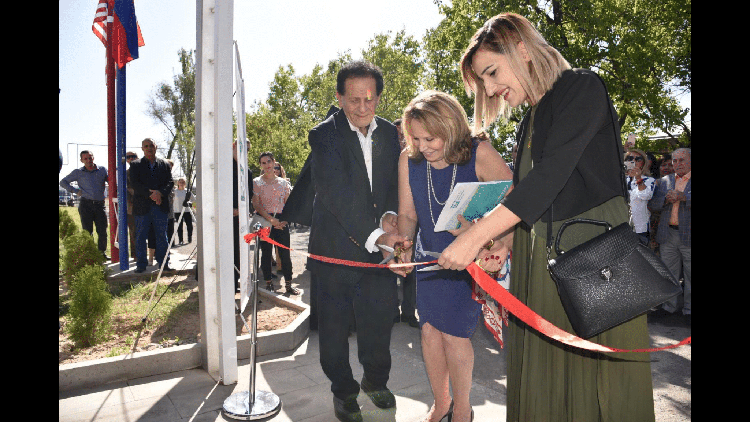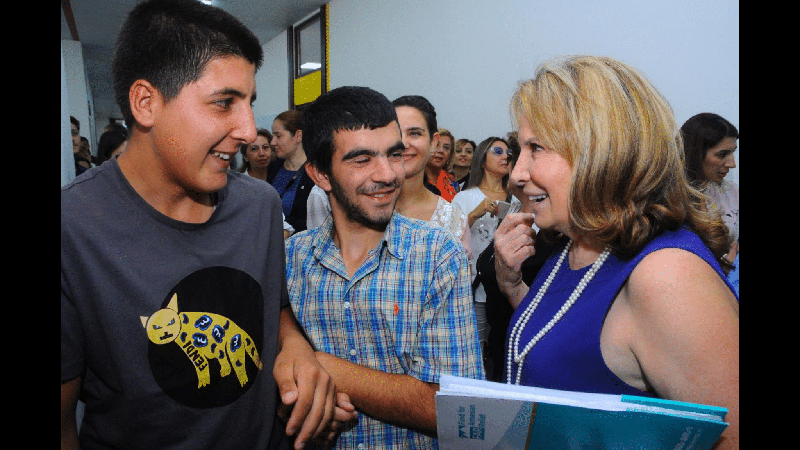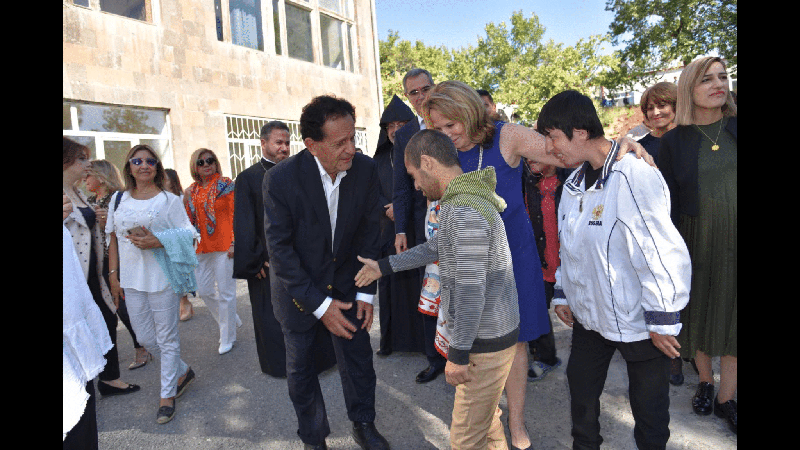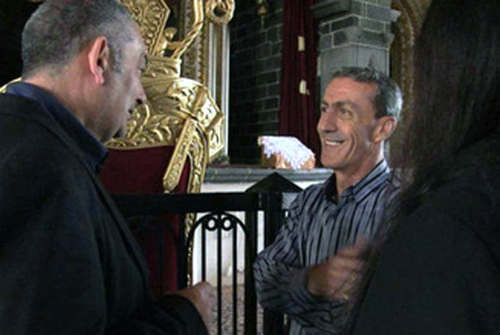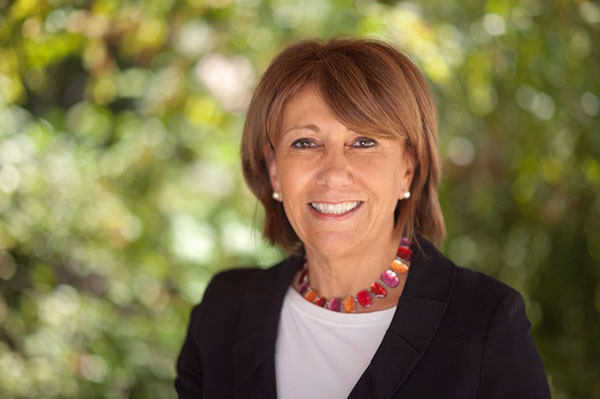BY FLORENCE AVAKIAN
PARAKAR — I love doing everything with soil and gardening, and I cannot wait to graduate and go back to my village to work in the orchards,” says Aramayis.
“I dream of becoming a singer or a dancer,” says Lilit who hails from Artik, a small town in the Shirak marz.
And Armen who weaves carpets, desires to become a professional artist and do portraits.
The Paraker School for Children with Disabilities has been the highlight for these children (ages 17 to 20) who are among more than 250 youngsters in this safe and loving haven. These three young people along with two others who have different levels of retardation are scheduled to graduate in June, 2020.
For them, and the approximately 200 others who live at the FAR Parakar Special School for Children with Disabilities, the prospect of leaving this safe and loving haven causes “their eyes to turn sad,” said Margarit Piliposyan, Vice Director of the Yerevan Office of the Fund for Armenian Relief, in a telephone conversation from Yerevan, with this writer.
“They want to stay longer at the School. They live as a family,” noted Piliposyan. “They love everything about the School, including the teachers, atmosphere, conditions of life, and friends.”
The noble goals of this remarkable institution are to help these youngsters “acquire decent skills to land a job, and most importantly to believe in themselves, regain self-esteem, and hope, become normal contributing citizens, and be considered normal by others in society.”
However, in the last 30 years, the school’s infrastructure has deteriorated. “It is no longer safe for children in wheelchairs, with its falling balconies and other structural failures. The teachers are also worn out from tending to these needs, and teaching there for decades. It has become a hell for the children,” reported Piliposyan.
Futuristic Crucial Goals
A state of the art Vocational Training Center is in the works.
Included in this crucial project are the crucial goals of ensuring a “safe and nurturing environment for learning and living, reimagining the role of teachers to be mentors, role models and collaborators, and giving necessary confidence to parents for a safe environment with caring and reliable professionals.
Included among the structural improvements are the renovations of the gym, dormitories with clean bedrooms, the educational center and the classrooms, completing the rehabilitation center, training for the therapists, and the creation of a greenhouse where the youngsters can use their creativity to learn, grow and eat their own vegetables.
All of these goals are for the easing and helping the students to progress from the classroom to the workplace with specializations in social, psychological, therapeutic life skills, in conjunction with Armenia’s Ministry of Education.
“FAR started this program last year. This is a huge change in the mindset of the population,” continued Piliposyan. “It has never done before in such a comprehensive way. We are creating a model for the families, the employees and the employers,” she declared with obvious pride.
Involved Without A Blink
“When the Fund for Armenian Relief presented this to the FAR Board of Directors, Marta Batmasian and her family immediately pledged $1.5 million.
In a telephone interview, Marta Batmasian who has been deeply involved in 120 charitable endeavors throughout her life, enthusiastically jumped into this noble project “without a moment of blinking.”
She enthusiastically stated, “I wasn’t as emotional until I saw what impact it has had and continues to have in the lives of almost 300 young individuals, who either have no home, or come very poor families.
“These are not your average orphans, or children with minor problems. These are youngsters who have been physically neglected, and thrown out of society.”
Far Too Long
For far too long, the atmosphere in Armenia has been a place of alienation and rejection for families with disabled members. They were denied the right to participate in society, robbed of their dignity and self-worth, and often put in an orphanage or an institution run by the government.
But in the caring and loving environment of the Parakar School, these children are “trained to enter needed professions that benefit their country,” she continued, and mentioned a rug she cherishes made by one of the young ladies, calling it “a labor of love, innocence and appreciation.”
Marta Batmasian’s story reflects her deep empathy for the “less advantageous”. Born and raised in Istanbul, she came penniless to the U.S. and met her husband James “who also was penniless.” Proud in nature, she did not accept a penny from her parents, often going hungry.
Since then, through devoted hard work, life has dramatically changed for Marta and her husband James who are real estate pioneers in Boca Raton, FLA. They own Investments Limited, and are known for their vast philanthropic work.
Marta is on the FAR Board of Directors and eight other charities, and working with four non-profits. Close to her heart, in addition to her deep involvement with FAR is People Reaching Out to Provide Education and Leadership (PROPEL) which “helps youth living in economically depressed areas by providing an educational center” after their regular school day.
She gives enormous credit to the “inspired work of FAR, and its AYO program with its 34 projects which she called her “real baby”. Ayo, with its five young workers, placing donation boxes in different areas of Armenia, encourage Armenia’s citizens as well as tourists to give what they can to help indigent children and elders.
“FAR has done more projects than anyone else in Armenia,” she declared, emphasizing each word. “All these extremely worthy and needed FAR projects are things tangible, and will in the future become automatic. They are their own testimonial, and will change attitudes.”
“It is my privilege and honor to do what I’m doing for this wonderful and dedicated FAR organization. I have received so much more than I have given.”

